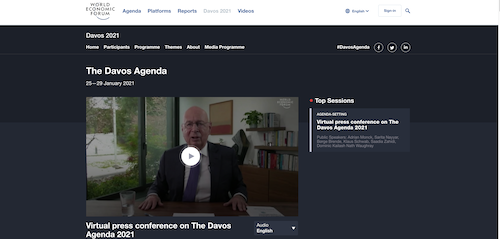Guest Blogs
Knowitall.ch often invites local experts in their field to contribute to their own blogs on our site. This means not only you will benefit from the useful recommendations that we make on our News pages, but you can also profit from some of the great advice and tips that these experts have to make on their favorite subjects. Whilst each of these bloggers has been recommended to us at some point during the evolution of Know-it-all passport and knowitall.ch, obviously we are not able to test out all the suggestions they make on their blogs, nor do we necessarily agree with all their opinions. So if you do find one of their tips useful (or not!), do let us know!
To make these blogs more accessible to you, we have now decided to group them altogether in one section, entitled Guest Blogs, accessible from our main menu bar. We will also post the most recent blogs on the home page of our site in the right hand column.
We are still building up this area of the site, and are looking for bloggers in a number of sections, including Your Home, Travel, and Leisure, so if you feel you have a useful contribution to make in either of these areas, and have the time to submit blog entries approximately every month, then please get in touch!
Video link to recipe here: https://youtu.be/-nO1YvOGiFQ
I received a HUGE Toblerone bar (4.5kg = 10lbs) for Christmas from my son. I can't imagine we will be able to eat the whole thing so I thought I might use it in some recipes. The first one is a simple, easy, 2-ingredient "mousse", with no eggs. I have made a large quantity to fill the empty containers that my neighbors and friends used to bring me meals while I was ill with coronavirus as a "Thank You.”


By Claire Doole, Doole Communications
This week the powerful icons of business, finance and a spattering of civil society will not meet in the Swiss ski resort of Davos for the annual World Economic Forum’s flagship meeting. Instead, they will meet virtually for a meeting billed as the Davos Agenda which will focus on rebuilding trust and shape the principles, policies and partnerships needed for 2021.
I am hoping the virtual meeting will also showcase and shape best practice in terms of organising virtual events. Many companies and organisations have made the shift from physical to digital events – recognising that producing a successful event is like producing a TV programme. As I wrote in my September blog, they must be shorter, more varied, more creative, better moderated and rigorously rehearsed.
But since then, it has become even more obvious that organisers are going to have to up their game if they are to counter the increasing challenges of high attrition rates.
Let me share some anecdotal evidence. Organisers are not getting the numbers as “zoom fatigue” sets in and attendees zoom out. In some instances, there are just too many virtual events. One communications director from an international organisation told me they organised 67 webinars last year – sometimes up to three a week– and had to make sure staff took part to ensure strong numbers.
This year, faced with budget cuts, international organisations and NGOs are scrambling for relevance with donors, which means the pandemic of virtual events shows no sign of slowing. However, they systematically risk forgetting the well-known saying in communications that less is more.

By Aurea Fagel
As the holiday season is now behind us, we would normally be settling down after a tumultuous time of scrambling for last-minute flights and hotels or returning from a trip somewhere with warmth, snowy peaks, or foreign languages.
Some of you would have been heaving a sigh of relief after family gatherings or friends coming over for dinner and ensuring your home is nicely decorated, wines are aplenty, and the kids presentable.
But probably not this last season. Travel was the last thing on most people’s mind. Or even visiting friends or relatives. You may be planning on where to travel next year when all this Covid-19 madness is over.
But there is one type of journey we can all considering doing. It doesn’t involve money, packing, or preparation. It requires only time, reflection, and maybe action.

By Dr Mecky McNeil, HealthFirst
November is probably the most challenging month of the year. The turning back of the clocks, and with it the shorter days, signifies winter is around the corner. This year, the days feel even darker than usual, as we are facing the greatest health crisis of a lifetime. But alongside Covid, we are also experiencing a mental health pandemic. More than 1 billion people globally are suffering with mental illness. This is being further impacted by isolation following quarantine and the need to socially distance and wear masks to reduce the risk of infection.
Every November since 2003, Mo Bros across the world have been growing moustaches and setting themselves challenges to raise awareness of men’s health issues.
This year alongside raising awareness of prostate and testicular cancer, they are addressing men’s mental health and suicide. Their target is to reduce premature death in men by 25% by 2030.
One man dies every minute from suicide across the world. In England 1 in every 8 men suffer from a mental illness including anxiety, depression and obsessive-compulsive disorder (1), and men are 3 times more likely than women to have an alcohol use disorder (2). These numbers are the tip of the iceberg as they only represent the cases reported and diagnosed.
Gender stereotypes and society’s expectations mean that many men do not feel able to speak out about how they are feeling, leading them to look for other ways to cope. Self-medicating with alcohol to reduce their distress and withdrawing from others for fear of judgement are sadly common outcomes.
In their moment of need, many men simply do not know who, or where, to turn to. The reduced inhibitions from using alcohol in this moment of crisis, means thoughts of suicide may seem the only option. Sadly, this dangerous cocktail can lead to someone acting on these thoughts and the devastating outcome of a premature and avoidable death.

photo courtesy of ERS
By Claire Doole, www.doolecommunications.com
Many of you are moderating events and panel discussions in the virtual world. If you are an in-house moderator, you have an advantage over someone like myself in that you automatically know the subject area. However, that doesn’t mean that you can “rock up and just have a conversation” in the words of someone I coached recently in how to moderate at a virtual event!
Professional moderators may make it look effortless as they seamlessly transition from one speaker, subject area or segment to another, but it takes a lot of preparation to work out the editorial narrative of an event and the flow of a specific panel discussion.
In many respects in the virtual world, it is even harder for two main reasons:
1) It is more challenging to capture and hold the audience’s attention and;
2) Organizers are packing their events with too many speakers.
If you want to overcome these challenges and be a dynamic virtual moderator, have a look at some of my tips below:
Work with the organisers on event design
I run workshops and act as a consultant to organisations and companies on how to design an entertaining, participatory and insightful event. As an in-house moderator, however, you are well placed to influence the narrative and flow of the event from the start.
- Make sure they have made the shift from the real to virtual world and apply the principles of a TV news programme, namely short, varied and creative.
- Advise on the format. Blocks of speakers who present one after each other is overwhelming and potentially tedious for the audience. I have seen programmes where nine speakers make keynote speeches, presentations or remarks with no audience or moderator intervention for the first hour. Even two keynote speeches of 20 minutes each back to back before the audience Q&A is asking a lot of the audience.
- Limit the number of speakers in a panel discussion to no more than four. I have turned down panel discussions where there are seven speakers as it is impossible to generate a lively discussion of views. It goes without saying that it is frustrating for the panelists to be given so little time to get their points across and can certainly lead to information overload for the audience.










